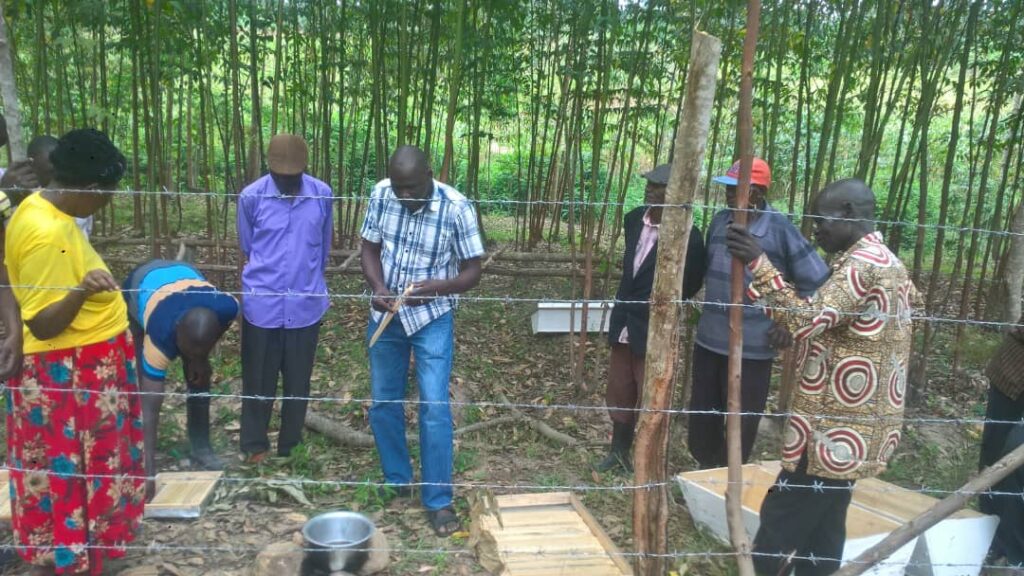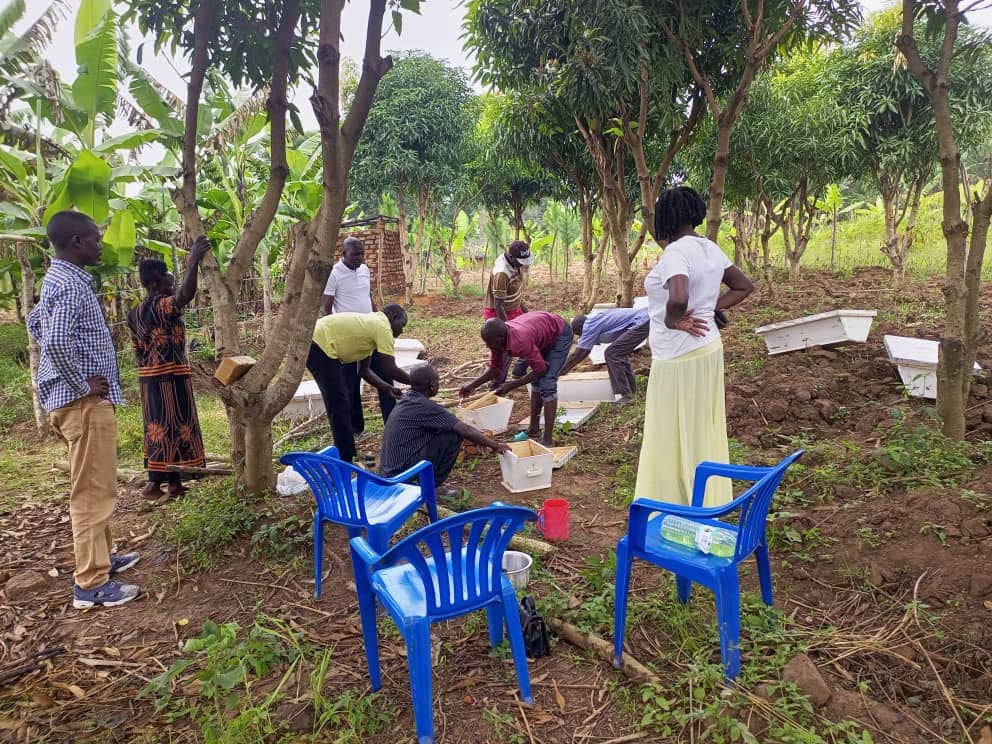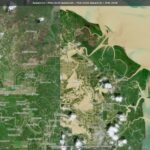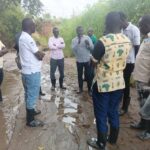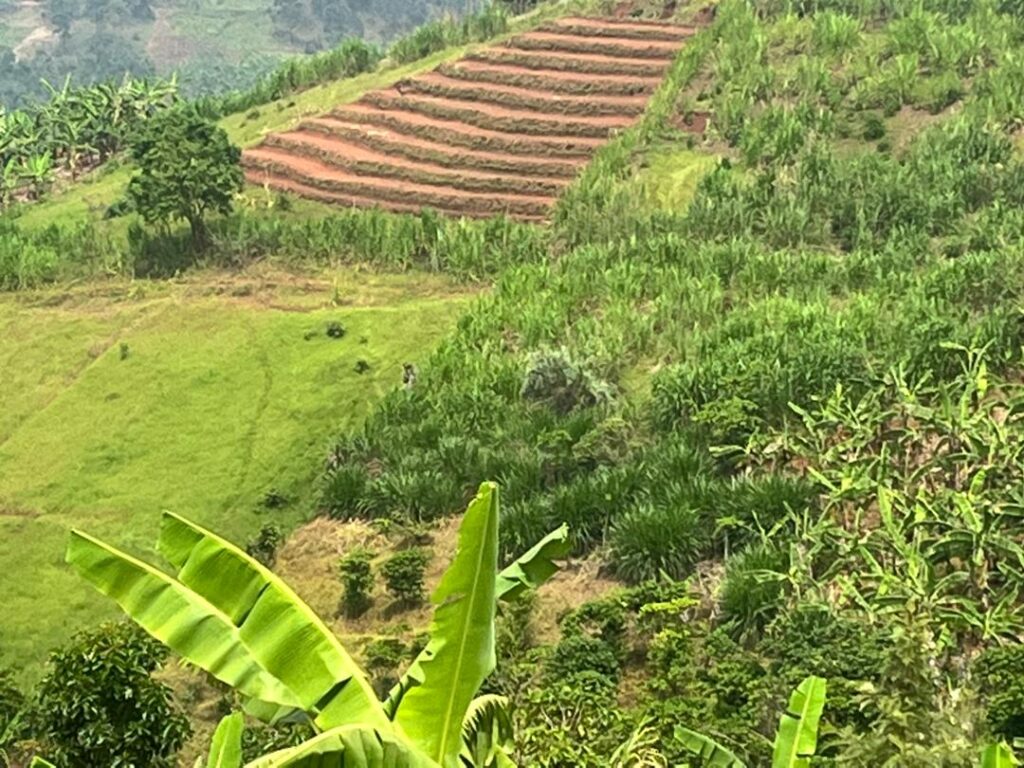Boosting income generation through beekeeping in Eastern Uganda
Article written by East Africa Team
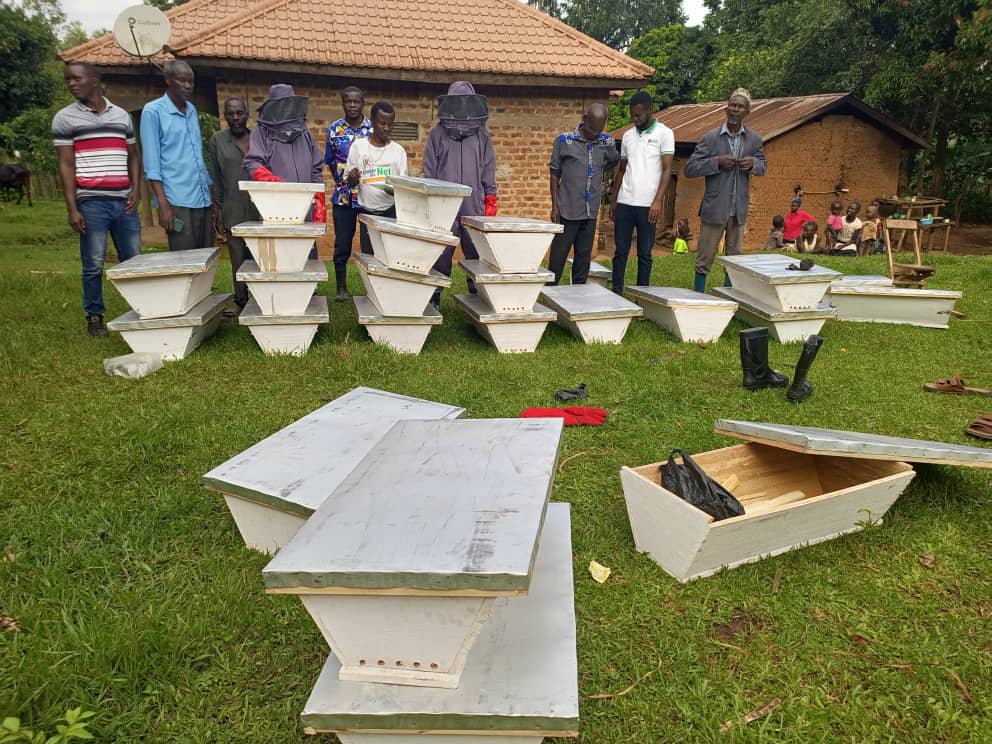
AidEnvironment, on behalf of the Ministry of Water and Environment (MWE) in Uganda, empowers locals by building skills in beekeeping through training and support, including production technology and access to market. This need for support surfaced following gulley rehabilitation and river bank restoration activities which reduced their farming land. The project intends to contribute to poverty alleviation and enhance environmental security by supporting communities engaged in alternative sustainable livelihood.
The project will help them generate income by providing employment to members of the local community and likewise providing honey, a much needed healthy food with medicinal properties. This initiative reduces pressure on the environment as people become economically self sufficient instead of encroaching on river banks for farming.
Beekeeping does not require fertile lands but rather woodlots established for further economic use under subsistence investment. It does not need complex technology and money in regular maintenance and supervision, nor does it require high intensive inputs. It is environmentally friendly and produces various health products. Economically, the project is expected to return the initial investment within one year. Community beekeepers were trained to use their beekeeping income in meeting their life needs, particularly including school fees for their children and investing in other income generating projects.
To sustain this as an agricultural and business endeavor, the project included training and supporting the target communities in constructing bee hives, site selection, honey and wax processing, packaging and marketing.
Below is a more detailed summary of the project:
Scope of coverage: Bumwoni, Bukiabi, Magale, Bubutu, Nabitsikhi, Namboko and Namitsa S/Cs in Namisindwa district, Bunyinza T/C in Manafwa district, Kalait and Mella S/Cs in Tororo district.
Target Beneficiaries: People affected by restoration activities geared towards stabilizing collapsing riverbanks due to erosion along rivers Namunyiri, Namikhoma Namitsa Kabukwesi and Kodike in Lwakhakha sub-catchment
Directly supported beneficiaries: Over 100 persons. 68% male and 32% female. High interest in the enterprise demonstrated by the men.
Objective of intervention: A mitigation strategy to recruit, train, and support communities to take on beekeeping as an income generating project intends to support the Project Affected Persons (PAPs) to recover from the impacts of environmental issues of collapsing river banks, loss of farm lands to gully formations and erosion.
Another objective is to reduce the household pressure on the riverbank ecosystems presented by community members carrying out cultivation and sand mining. This was done through mobilization, sensitization and capacity building of communities to be self-sufficient and live a happier life outside the areas being restored.
Methodology: the project has used participatory approaches in identification of the most affected through use of local leadership structures in identifying and assessing the most PAPs. AidEnvironment held meetings with key stakeholders to discuss practical approaches to be taken to use a beekeeping project in sustaining local communities. Trainings and meetings involving key beneficiaries were held to design and plan for the project. These capacity building sessions created a sense of ownership among the beneficiaries. For the purpose of continued learning and adopting best practices and standards, demonstrations were conducted and apiaries were established. These will be managed by the established community groups and the management structures in place.
Benefits of the enterprise to PAPs and the ecosystem: Honey and bee products are a source of income, cultural resource, medicinal purposes, maintenance of biodiversity through crop pollination among other benefits.
It is expected that households with access to improved sources of income will be less affected by poverty, further mitigating risks of encroachment on riverbanks. These economically developed households will use the generated income to provide better nutrition and health care, increased school attendance with improved results, and other factors associated with an improved quality of life. The beekeeping project will provide a new, much-needed source of income within Lwakhakha Sub catchment that will transform communities into a future generation of environmental conservationists.
Sustainability: AidEnvironment strongly motivated the beekeepers to maintain the project. During training and empowerment sessions, the farmers were taught and encouraged to save and invest their income and expand the beekeeping project. They were encouraged to continue to do fundraising, and partner with other organisations and stakeholders doing similar projects within and across the various boundaries of their districts to enhance continuity and growth.
Conclusion:
Working to create good relationships between humans and the environment through beekeeping for improved livelihoods, will allow communities to be self-sufficient. The beekeeping project is a part of many initiatives geared toward income generation for communities including fodder, and establishment of energy saving cookstoves.

